The mysterious and captivating nature of owls has long been a subject of fascination in various cultures, and their presence in the Bible is no exception.
Owl hooting in biblical times was often believed to be a harbinger of a spiritual message.
While owls were considered unclean birds in the Bible and were forbidden for consumption, their symbolic significance went beyond this practical guideline.
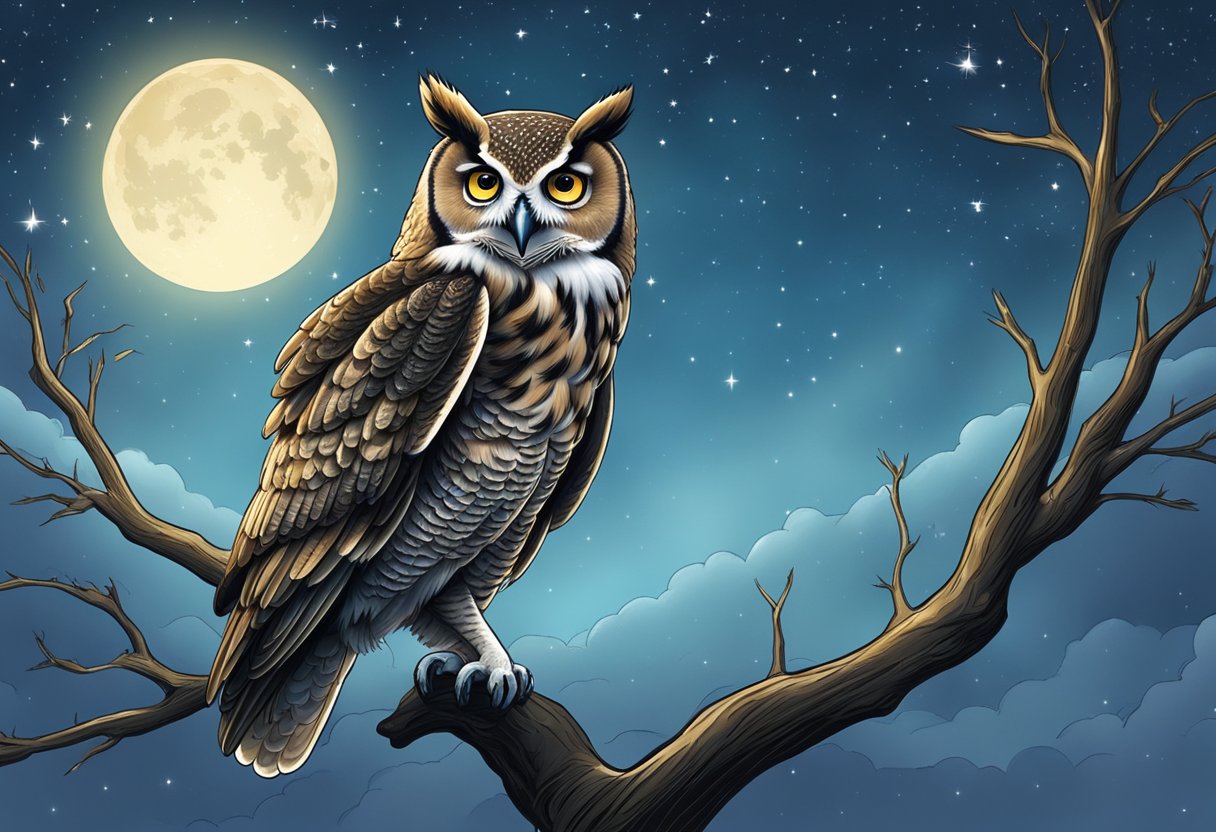
In the Bible, owls are frequently used to symbolize loneliness, desolation, mourning, and judgment.
Their haunting hoots are thought to be a representation of God’s voice, reminding people of their inner strength and potential for personal growth through difficult times.
This association with wisdom and knowledge offers a deeper meaning to the biblical interpretation of owl hooting.
In many cultures around the world, owls hold various meanings with their hoots often viewed as signs of change, transformation, or even a message from the spirit world.
In this context, investigating the biblical meaning of an owl hooting helps to shed light on this captivating creature’s spiritual significance throughout different belief systems and historical periods.
What does the owl hooting mean in the Bible?
The owl is mentioned several times in the Bible, often in the context of unclean birds or desolation. When it comes to the specific act of an owl hooting, different interpretations exist among biblical scholars and believers.
While there is no definitive answer, a few meanings can be drawn from the Scriptures that mention owls.
One possible meaning of an owl hooting in the Bible is a call to repentance. It serves as an audio reminder that a person needs to reflect on their actions, turn away from their sins, and seek forgiveness.
This understanding comes from the common symbolism of owls as nocturnal creatures that can see through the darkness, analogous to guiding people in their spiritual journey.
Another interpretation links the hooting of an owl to wisdom. Owls are often associated with wisdom in various cultures, and this symbolism can also be found in the Bible.
For instance, Proverbs 30:17 highlights the owl’s sharp vision, which could symbolize the ability to discern truth and make wise decisions.
Thus, when an owl hoots, it might serve as a reminder to seek wisdom and make thoughtful choices.
A third possibility is that an owl hooting indicates desolation or mourning. When owls are mentioned in the Bible, they often inhabit deserted or ruined places, such as in Isaiah 13:21 and Isaiah 34:13.
The eerie sound of an owl hooting at night could represent the desolation of these places, or the anguish and sorrow experienced during times of loss or hardship.
To sum up, the meaning of an owl hooting in the Bible varies, but some of the most prevalent interpretations include a call to repentance, a reminder to seek wisdom, or an indication of desolation and mourning.
It is essential to consider the context in which owls appear in the Scriptures when interpreting their significance in a specific passage or situation.
7 Biblical Meanings of an Owl Hooting
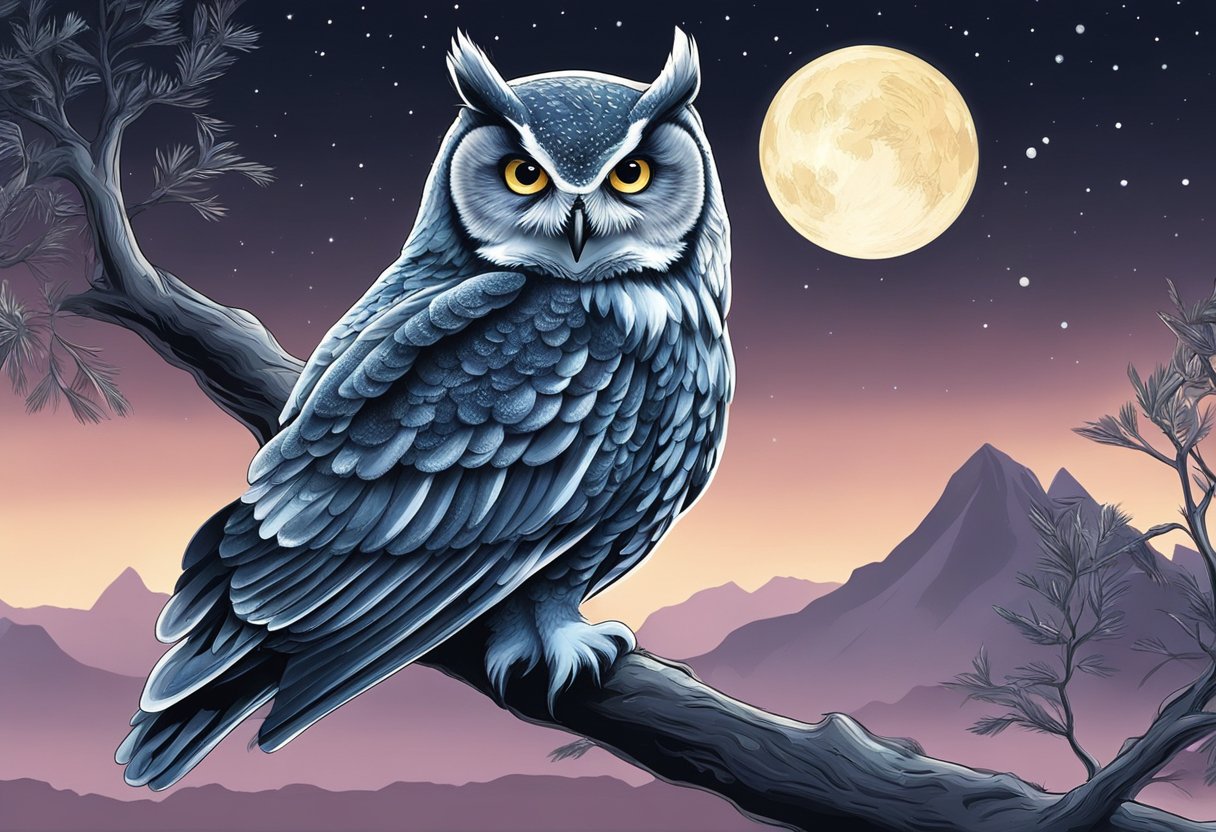
In the Bible, owls hold various symbolic meanings. An owl hooting carries a unique significance, often linked to spiritual messages. Here are seven biblical meanings of an owl hooting:
1) Mourning and Desolation:
Owls are often mentioned in the Old Testament, where they symbolize mourning, desolation, and loneliness. The presence of an owl hooting signifies a time of sadness or loss.
2) Judgment:
In some biblical contexts, an owl hooting indicates impending judgment. The owl’s nocturnal nature metaphorically represents the darkness that envelopes those who face divine judgment.
3) Unclean Bird:
Deuteronomy 14:11-17 lists owls among unclean birds. As such, a hooting owl can serve as a reminder of the need for spiritual cleansing and the dangers of sin.
4) Messenger of God:
Some interpretations associate the owl with divine intervention or messages from God. Listening to an owl hooting may encourage believers to seek guidance and discern the spiritual significance of their current situation.
5) Divine wisdom:
Being creatures of the night, owls symbolize the hidden, mysterious aspects of life. Hooting owls can, therefore, signify the process of seeking greater divine wisdom and understanding in one’s spiritual journey.
6) Death and Rebirth:
Owls are sometimes associated with the cycle of death and rebirth. Hearing an owl hoot might signify the end of one phase in life or a relationship and the beginning of a new one.
7) Spiritual Enlightenment:
Lastly, an owl’s hooting can represent spiritual enlightenment, marking an individual’s progression towards a deeper connection with God and the understanding of divine truths.
By exploring these different meanings, it becomes clear that the biblical significance of an owl hooting is complex and multifaceted.
Believers may find comfort, guidance, or warnings in the sounds of this intriguing creature, depending on the context and circumstances surrounding their encounter with the hooting owl.
Read too: Biblical Meaning of Seeing a Falcon: Symbolism and Interpretation
Negative Associations of Owls in The Bible
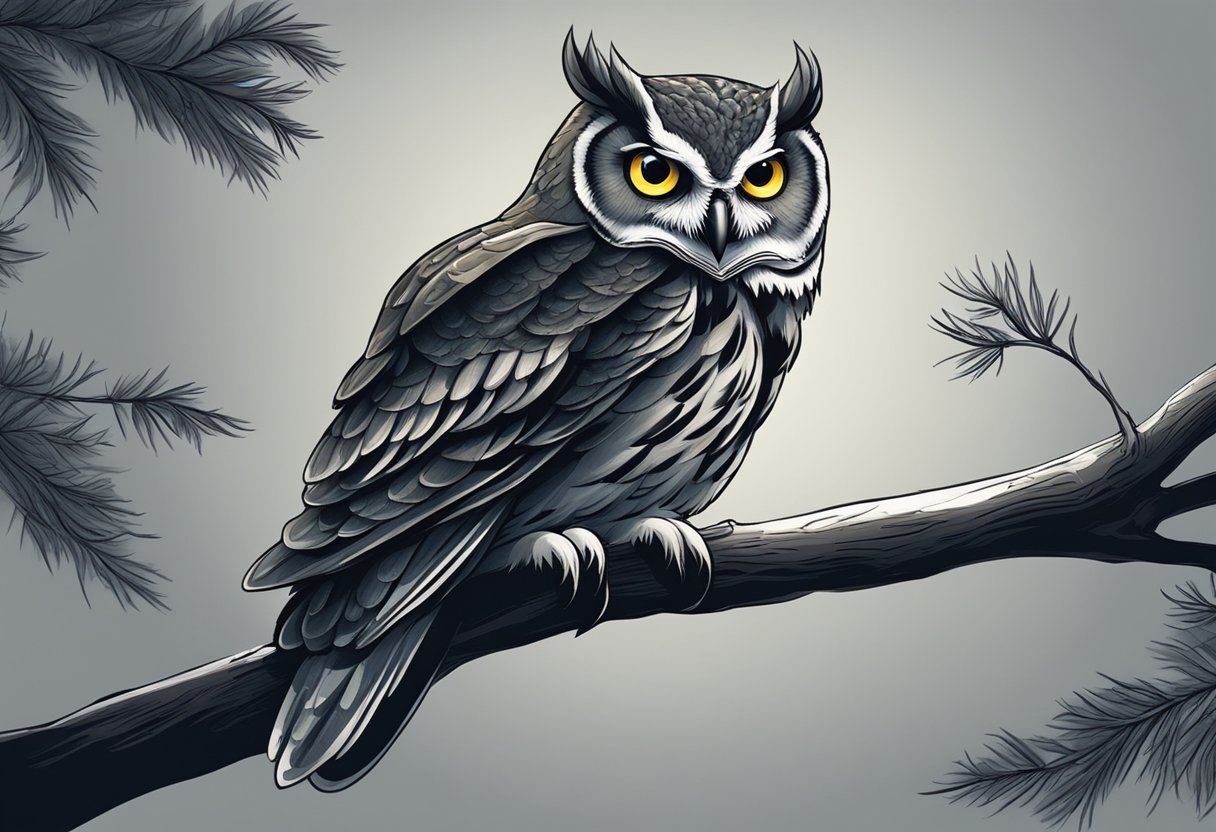
The Bible features owls in various contexts, many of which carry negative connotations. One such association links owls to unclean birds.
Owls are considered unclean and forbidden to be eaten according to the scriptures of Leviticus 11:13-18 and Deuteronomy 14:11-17.
In terms of symbolism, owls in the Bible often represent desolation, emptiness, loneliness, and destruction.
The bird is particularly associated with the prophecy of Babylon’s demise, emphasizing the city’s desolate state and impending ruin.
Owls hooting at night are sometimes associated with omens and bad luck in various cultures. These nocturnal creatures are thought to carry messages of misfortune or even death.
As a result, hearing an owl’s hoot during the night can evoke fear and unrest, even if not explicitly stated in the Bible.
Moreover, owls and darkness are commonly tied together, as the birds are active during the night.
This association can lead to the belief that owls are related to danger, evil, and witchcraft. Some cultural superstitions may also suggest that owls are connected to evil spirits.
In biblical contexts, owls have also symbolized distress and mourning. As the bird inhabits deserted places, it is often seen as a metaphor for feelings of isolation and despair.
This connection between owls and negative emotions contributes to the perception of the owl as an emblem of tormenting loneliness.
In summary, owls in the Bible have various negative associations, from being considered unclean birds to symbolizing loneliness, desolation, and destruction.
These associations, along with cultural superstitions, contribute to the view of owls as harbingers of misfortune and bearers of negative omens.
Read too: Dove Biblical Meaning: Symbolism and Significance in Christianity
Positive Associations of Owls in The Bible
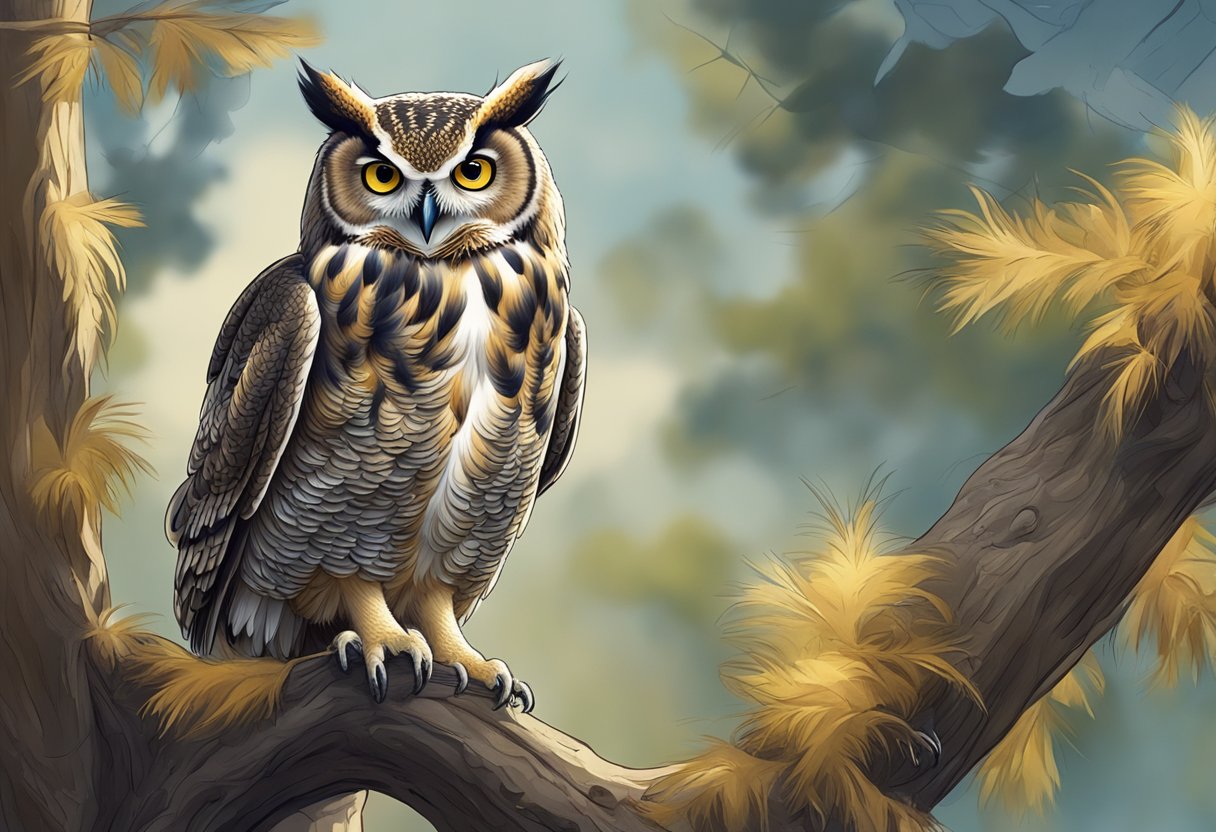
Though the Bible often depicts owls symbolizing loneliness, sadness, and destruction, these nocturnal birds also maintain positive associations in scripture.
Owls are admired for their wisdom, guidance, and knowledge. As creatures of the night, they have exceptional skills in navigating through darkness, making them symbols of strength and intelligence.
As God’s special messengers, owl appearances serve as divine communication between the Creator and humans.
Their presence can be interpreted as protection and an expression of faith. This supernatural aspect portrays owls as unique birds, sent by God to deliver a message or a sign of good luck.
Through their sharp senses and keen observation skills, owls represent wisdom and knowledge. Combining such extraordinary traits, these birds are considered symbols of intelligence.
This notion is reinforced by the owl’s visual acuity and exceptional ability to detect subtle changes in the environment around them.
In summary, owls in the Bible possess several positive associations including symbolizing wisdom, guidance, protection, strength, faith, and intelligence.
As God’s special messengers, the appearance of an owl can serve as a sign of good luck, reassuring the believer that they are under divine guidance and protection.
Owls in Spiritual and Cultural Contexts
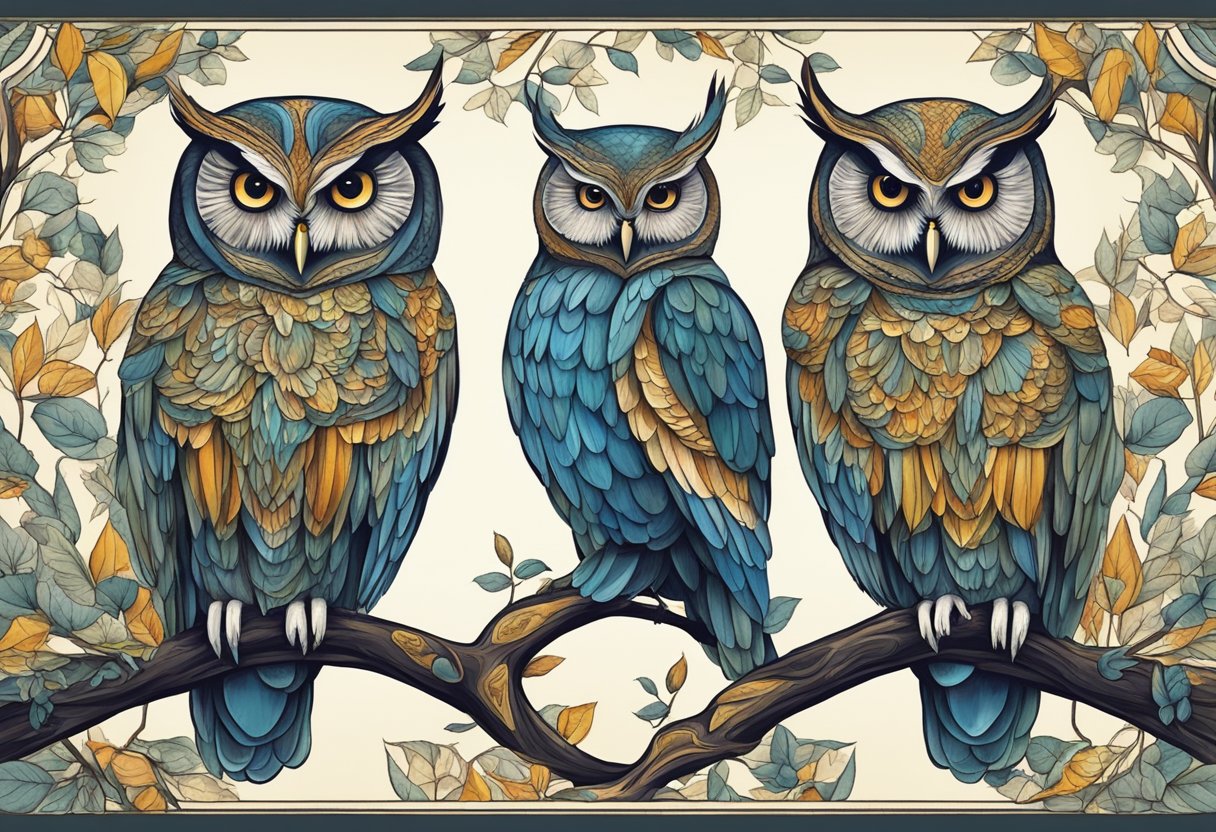
Owls in Native American Culture
In Native American culture, owls hold a significant place in spiritual beliefs. They are often associated with the spirit world, acting as messengers and guides for those who have passed on.
The hooting of an owl can be a signal for change or new beginnings, representing transition or rebirth.
Some tribes view the owl as a symbol of protection, while others see it as an omen of impending death or misfortune.
The diverse spiritual meanings of owls in Native American culture underscore their importance in these societies.
read too: Biblical Meaning of Seeing a Blue Jay: Spiritual Insights Revealed
Owls in Ancient Greece
In ancient Greece, the owl was a symbol of wisdom and knowledge, owing in part to its association with the goddess Athena.
The hooting of an owl was believed to carry messages from the gods or spirits, providing guidance and insight to those who heard it. Additionally, owls were seen as protectors, guarding against evil spirits and bringing good luck.
Their presence in Greek art, mythology, and literature highlights the cultural significance of owls in this ancient civilization.
Owls in Ancient Egypt
The ancient Egyptians had a unique perspective on owls, regarding them as symbols of death and the afterlife.
The hooting of an owl was thought to signify communication between the living and the dead, serving as a metaphor for the spirit world.
Although they were often associated with dark, mysterious forces, owls were also revered for their nocturnal abilities and considered to possess magical powers.
The spiritual meanings of owls in ancient Egyptian culture showcase their intriguing role in the beliefs and practices of this ancient civilization.
Throughout these diverse cultural and spiritual contexts, owls hooting have consistently held symbolic meaning and played important roles in spiritual beliefs and practices.
Whether representing change, wisdom, or communication with the spirit world, owls have captivated the human imagination for centuries, their haunting calls and enigmatic presence inspiring awe and wonder across cultures and time periods.
Final words
The biblical meaning of an owl hooting can be understood by examining the various symbolic representations of owls in the Bible.
As mentioned in Deuteronomy 14:11-17 and Leviticus 11:13-18, owls are considered unclean birds, and the Israelites were prohibited from eating them.
Their appearance in the Bible is often linked to themes of mourning, desolation, loneliness, and judgment.
In some instances, owls are also associated with wisdom and insight. For example, Proverbs 30:17 alludes to the owl’s sharp vision, which sets it apart from other creatures that cannot see clearly at night.
This symbolism can be interpreted as a reminder to pursue deeper understanding and spiritual enlightenment.
As mysterious and captivating creatures, owls hold a unique place within biblical imagery.
The sound of an owl hooting can evoke various interpretations depending on the specific context and the symbolism drawn from the Bible.
By engaging with these spiritual dimensions, readers can develop a deeper appreciation for the role of owls within biblical texts and the wisdom they may offer.